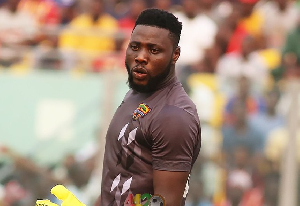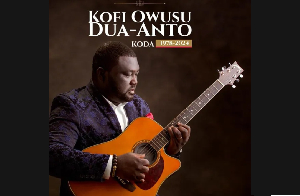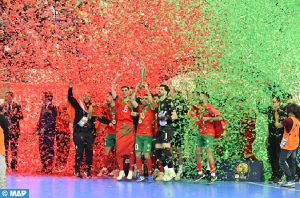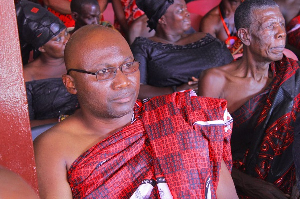- Home - News
- TWI News | TV
- Polls
- Year In Review
- News Archive
- Crime & Punishment
- Politics
- Regional
- Editorial
- Health
- Ghanaians Abroad
- Tabloid
- Africa
- Religion
- Election 2020
- Coronavirus
- News Videos | TV
- Photo Archives
- News Headlines
- Press Release
Opinions of Monday, 12 November 2012
Columnist: Darko, Otchere
Whoever Loses The Elections Must Concede Defeat
Whoever Loses The December 7th Elections Must Concede Defeat
The biggest problem that has faced the democratic experiment of Ghana’s Fourth Republic is the tendency for parties and individual candidates that lose elections to constantly cry foul. This has been the trend since the 1992 elections that preceded the Fourth Republic and its first President and first Parliament.
We all know that in elections it is not possible for all contestants to win. Some will win and others will lose. The beauty of multi-party democracy comes when the losers of elections concede defeat and congratulate the winners. What happened in the recent American elections demonstrates this. The Republican Party and its leader (Mitt Romney) conceded, when defeat became obvious to them even before all the results had been declared. Why is it that here in Ghana, almost all election losers always complain about declared results and refuse to concede defeat? Unless this habit of rejecting election results is brought to an end in one way or another, Ghana risks being added one day to the list of African countries that have been, or have nearly got plunged into civil war as a result of disputed elections. What can Ghana do to ensure that election disputes in this country are not allowed to drag on to the stage where they begin to threaten the nation’s peace and unity? As an answer to this question, I suggest a two-way solution that involves an immediate short-term [temporary] approach to the solution of the problem and a future long-term [permanent] one.
In the short term, that is, between now and the coming December 7th elections, all the presidential candidates and their parties, but most especially President Mahama and the NDC and Nana Akufo-Addo and the NPP, must give a public assurance to the nation that under no circumstance will they reject the results of the Electoral Commission, as long as they (the EC’s results) are backed by a majority election report compiled by independent election observers, including those that represent ECOWAS, the AU and other international election monitors with globally acclaimed reputation. Ordinary Ghanaians and international election observers hope and believe that Ghana’s Electoral Commission will match its past good record by conducting elections that will be as free, fair and transparent as possible. Given, however, that elections in even the most democratically developed nations like USA and UK occasionally get a few hitches here and there, it cannot be ruled out that there will be a few problems here and there in the coming elections. What parties and candidates with grievances should therefore do in such situations is to use due process to deal with anomalies that may come to their attention. By due process, I am referring to procedures laid down in our election regulations and other laws for dealing with election grievances. *Parties and candidates need to remind themselves of America’s “Florida 2000” that put modern American democracy under both spotlight and test, when a strong suspicion developed among members of, and voters for the Democratic Party that the Governor of Florida State, who was a younger brother of George W. Bush, was attempting to rig the Florida results to favour his elder brother. Presidential candidate Al Gore and his Democratic Party used due process, including the courts, to challenge the elections in some parts of the State of Florida; and after that failed, they gave up the challenge and conceded defeat to enable democracy to work. *To this day, many Democrats and non-American political analysts believe that Al Gore was robbed of victory; and yet everybody agrees that it was better that they (Al Gore and the Democrats) “let the sleeping dog lie”, since the suspicion they had could not be proved in court.
As a longer term answer to the question posed in paragraph two above, it is suggested that the 1992 Constitution should be amended in future to allow adequate provisions to be inserted to compel all parties and candidates in all future to sign binding [constitutional] undertakings, as part of all future election processes, to the effect that they (the parties and the candidates) will not reject the results declared by the Electoral Commission on their face value, as long as they (the EC’s results) tally with election reports compiled by majority of independent election observers sent by international bodies, such as those sent by ECOWAS and the African Union and other election observers representing globally acclaimed NGOs noted for volunteering services in the monitoring of elections in countries where democracy is only beginning to develop roots; and where there has not been any court order setting aside such declared results that have been confirmed by a majority report of independent election observers, as suggested here in this paragraph. Such new constitutional provisions must include tough sanctions against parties and candidates that breach their own undertakings. The suggested tough sanctions should include banning such parties and candidates from taking part in future general elections. The suggested constitutional amendment should further contain provisions that spell out what should be done in a situation where the results declared by the Electoral Commission fail to tally with those found by a majority of international election monitors and observers who come into the country purposely to observe the conduct of future elections. This last suggestion aims at avoiding the occurrence in Ghana of something similar to what happened in the recent past in Kenya and Cote d’Avoire, where incumbents colluded with the Electoral Authorities in the two countries to steal the elections that most international observers believed to have been won by opposition parties. THE PEACE AND UNITY OF GHANA MUST IN NO WAY BE COMPROMISED BY POLITICAL PARTIES AND CANDIDATES THAT SEEK THEIR PAROCHIAL PARTY AND PERSONAL INTERESTS.
Source: Otchere Darko










